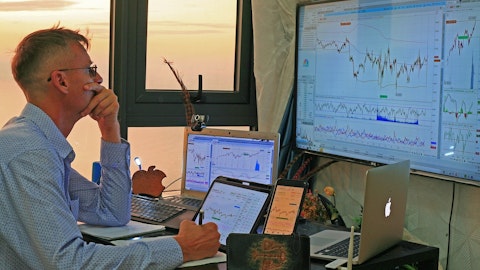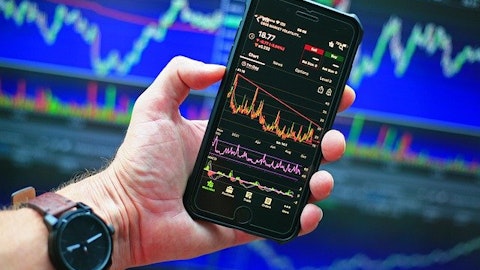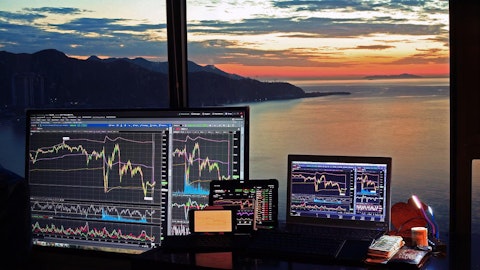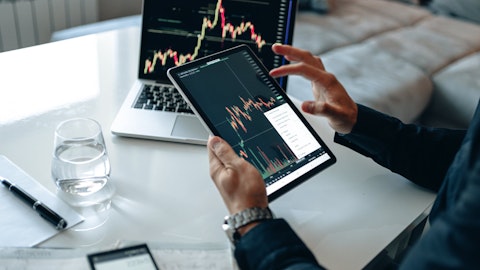In this article, we discuss 5 best environmental dividend stocks to buy according to Al Gore. If you want to read our detailed analysis of Al Gore’s sustainable investing, go directly to read 12 Best Environmental Dividend Stocks To Buy According To Al Gore.
5. The Charles Schwab Corporation (NYSE:SCHW)
Number of Hedge Fund Holders: 74
Generation Investment Management’s Stake Value: $1,218,280,388
An American financial services company, The Charles Schwab Corporation (NYSE:SCHW) was the largest holding of Generation Investment Management in Q4 2022. The hedge fund owned stakes worth over $1.2 billion in the company, which represented 7.03% of its 13F portfolio. The fund boosted its position in the company by 1% during the quarter.
The Charles Schwab Corporation (NYSE:SCHW), one of the best dividend stocks on our list, is committed to ESG through sustainable real estate practices, responsible workflows, and investment stewardship.
The Charles Schwab Corporation (NYSE:SCHW) currently offers a quarterly dividend of $0.25 per share for a dividend yield of 1.97%, as of April 15.
As of the close of Q4 2022, 74 hedge funds in Insider Monkey’s database held investments in The Charles Schwab Corporation (NYSE:SCHW), worth over $8.1 billion collectively.
LVS Advisory mentioned The Charles Schwab Corporation (NYSE:SCHW) in its Q1 2023 investor letter. Here is what the firm has to say:
“We exited The Charles Schwab Corporation (NYSE:SCHW) during the week leading up to the Silicon Valley Bank failure at a price in the high $60s. I sent an ad hoc note to partners on March 11 discussing our decision to sell the stock but I will add some additional context here. We invested in Charles Schwab during the summer of 2022 (discussed in our Q3 2022 letter) shortly after making our investment in Interactive Brokers. While Interactive Brokers is focused on faster-growing international markets and more sophisticated traders, Charles Schwab is a more mature US business focused on retirement accounts and wealth managers. Our investment thesis was that Schwab would benefit from higher interest rates and after years of investment would begin returning a significant amount of capital to shareholders.
My view changed when it became clear that liquidity would become a greater issue for all banks in early March. We believe Schwab has enough liquidity to operate its business, but we no longer believe the company is in a position to return capital. Furthermore, Schwab saw a higher degree of deposit flight in Q4 than we expected leading us to believe the problem could get worse before it gets better. Schwab may even need to raise additional equity capital to reassure the market of its liquidity position which would drastically change the risk/reward calculation of investing in the stock. While we realized a ~6% loss on our investment, our ability to quickly recalibrate our views during the early stages of the March banking crisis prevented us from losing an additional 20%+ if we had held on until today.”
Follow Schwab Charles Corp (NYSE:SCHW)
Follow Schwab Charles Corp (NYSE:SCHW)
Receive real-time insider trading and news alerts





